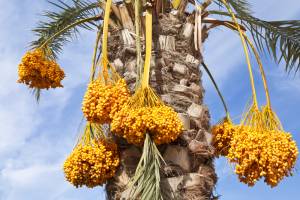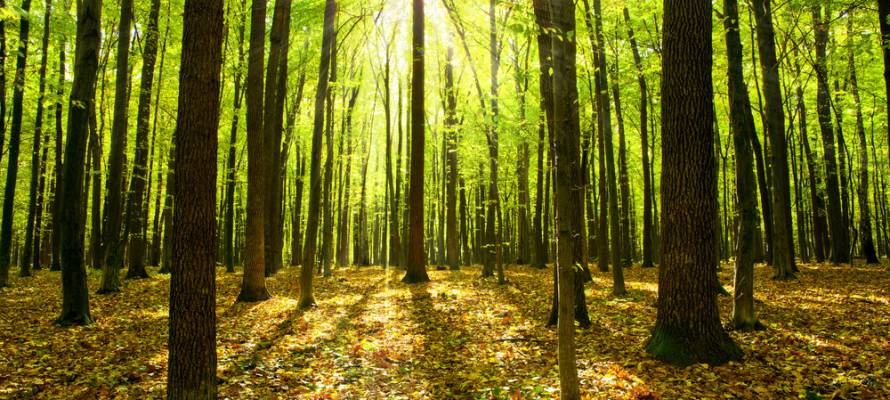By Yonit Rothchild
New Year’s celebrations may be over, but did you know that there is another New Year holiday being celebrated now?
The Holiday of Tu B’Shvat takes place on the 15th day of the Hebrew month of Shevat and marks the New Year for Trees. That’s right, trees.
This holiday serves a very practical purpose. When it comes to the laws of tithing in the Land of Israel, it’s important to know which produce belongs to which year. All of the vegetation produced before the 15th of Shvat belongs to last year’s produce as they are a product of last year’s rain. But anything that flourishes from after the 15th of the month belongs to the new year.
Aside from these important clarifications, the holiday of Tu B’shvat has another purpose. It reminds us to take a look around at our environment and learn to appreciate it. We celebrate trees, nature, and all of the wondrous creations that God has placed all around us.
CLICK HERE TO JOIN US IN PLANTING FRUIT TREES IN ISRAEL
I’m certainly no tree hugger, but I do love trees. I love their strength and their elegance. Their roughness and their beauty. Thanks to Tu B’shvat I’ve learned to appreciate trees for more than just their inspiring appearances. Beneath the surface there are countless lessons for life. Here are my favorite three.
Lesson #1: The end is really the beginning.
 The Holiday of Tu B’Shvat takes place on the 15th day of the Hebrew month of Shevat and marks the New Year for Trees.
The Holiday of Tu B’Shvat takes place on the 15th day of the Hebrew month of Shevat and marks the New Year for Trees.
Isn’t it strange that we celebrate trees in the dead of the winter when most trees are bare? Certainly springtime, when the trees start to blossom again, would have made more sense! Or even autumn when trees put on a magnificent show with their vivid array of colors would have been appropriate. But winter? Why now?
The Sages explain that in winter, deep beneath the frozen ground, new life is beginning inside the trees. The sap begins to flow and preparations are made for the blooming that will take a few months for us to see. We can’t see what is happening and the tree looks dead. But it is exactly now that the tree is most ‘alive.’ It is now that it is creating life.
It’s the same with our lives as well. Often times in the winters of our lives – when it seems that we are doing anything but blossoming – that’s when we are truly growing. Even if we can’t see it, even if it’s all happening way beneath the surface. Many of the ‘ends’ in my life have turned out to be bright ‘beginnings.’ Remember the trees when you feel frozen and dry. The blossoms of springtime begin in the winter, and the fruit of your lifetime begins with your challenges.
Lesson #2: Actions speak louder than words.

Date tree (shutterstock)
The Sages teach: “Say little, do much” (Ethics of our Fathers 1: 15). Trees are great examples. I know that they don’t exactly have a choice in the matter, but trees don’t talk. They don’t ask for things, they don’t complain, and they don’t make promises that they can’t deliver. They also don’t write books, give lectures, or have a blog. Yet, look at all that they have contributed and continue to give to humanity!
Remember Shell Silverstein’s “The Giving Tree” ? In the book, a little boy takes and takes from his tree, while the tree gives and gives. And that’s what trees do – they give. Think about it for a second. Trees give us food and shelter. They give us shade from the sun. They provide us with wood to make fires that keep us warm and wood to build houses and boats. The leaves on the trees contribute to the air that we breath and brighten the scenery for us almost all year long. Trees are beautiful to look at and fun to play on. And the list goes on and on.
While we live in a society that talks a lot, we need to take a lesson from the trees and learn to give a lot. While we often think that the way to leave our mark on the world is through our words and our writings, trees teach us that in the end, it’s what we do that matters most. Give more, speak less. We can all benefit from that advice.
CLICK HERE TO JOIN US IN PLANTING FRUIT TREES IN ISRAEL
Lesson #3: Strong roots make strong trees.
In the Book of Jeremiah, the prophet describes for us a true ‘evergreen.’ “…a tree planted by the water that sends out its roots by the stream. It does not fear when heat comes; its leaves are always green. It has no worries in a year of drought and never fails to bear fruit” (Jeremiah 17:8). A tree planted by a stream of water always has strong roots. It isn’t affected by the twists and turns of the weather because it has an alternate source of nourishment. A tree with well-watered roots always thrives. It is strong, beautiful, and always bears fruit.

Wouldn’t it be amazing to be like that kind of tree? Wouldn’t it be great if we could always grow and prosper no matter what the world sends our way? In the prophet’s analogy, the tree is lucky enough to be planted next to a never-ending source of replenishment. How can we keep our roots well-nourished? Is it just luck?
Jeremiah reveals the answer a verse earlier. He says: “… blessed is the one who trusts in the LORD” (Jeremiah 17:7). He explains that a person who is rooted in faith will grow strong like that tree. When we recognize that everything that happens to us is always for the best, we will be able to thrive in any circumstances. Sometimes God gives us what we ask for, and sometimes He says ‘no’ so that He can give us something better. When we integrate these words into our lives, we will always feel blessed. We will understand that everything is truly a blessing and every challenge an opportunity to grow.
These are some of the things that I’ll be thinking about this year on Tu B’shvat. Try to make some time to be out in nature this week. Sit under the trees and marvel at their wisdom and beauty. Maybe even hug one. God gave us the gift of trees – let’s enjoy the present!
